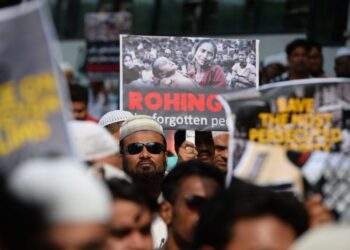Parwinder Kaur, an Indian-origin biotechnologist has been selected for the Australian government’s expert council to promote diversity and improve women’s participation in science, technology, engineering, and mathematics (STEM) fields. She was also named to the 2021 “Superstars of STEM” programme shortlist.
The University of Western Australia Public Policy Institute Fellow and native of Nawanshahr, Punjab, Associate Professor Parwinder Kaur, will use her years of expertise as a scientist, academic, and immigrant to foster diversity in Australia’s STEM industries.
Dr. Kaur expressed her gratitude to the government for this rare opportunity and her determination to use her position to increase the representation of women and other historically underrepresented groups in science, technology, engineering, and mathematics in her statement about her reaction to the STEM appointment.
In a statement released by the University of Western Australia, Kaur said, “Being a woman and immigrant navigating academia and industry, I have deep lived experience of the biases and invisible hurdles that are out there and which we all need to work on to not only increase participation in STEM but also retention.”
“I’m extremely grateful to the Albanese Government and Minister for taking the initiative to engage not just with key stakeholders, but with a range of communities, including those that might not currently identify themselves as being in STEM,” she added.
In late 2023, the government will receive a report from the three-person panel for the Pathway to Diversity in STEM Review that was appointed by Minister of Industry and Science Ed Husic.
To help women and historically underrepresented groups pursue education and careers in STEM, Minister Husic said, “The Pathway to Diversity in STEM review is about helping to create equal opportunities for them to do so, supporting them to unlock their full potential, and bolstering Australia’s STEM skills pipeline.”
Dr. Kaur reflected on her own journey and the difficulties she had as a migrant scholar in the less-travelled profession for women from her background, saying she wants to make the way simpler for others in similar situations.
Parwinder said, “I’m absolutely thrilled to be appointed as a panel member for Diversity in STEM, to serve alongside the amazing Sally-Ann Williams and Mikaela Jade working under the leadership of Minister Husic and his team.”
“As a panel, we’re passionate about achieving real diversity in STEM education and careers which includes, but isn’t limited to, women, girls, non-binary people, our First Nations people, culturally and linguistically diverse people, migrants, people living with disabilities, young people, mature age people, regional and remote residents,” she added.
Sally-Ann Williams, a pioneer in the business and technological fields, and Mikaela Jade, a Cabrogal woman from the Sydney-area Dharug-speaking nations, will serve as the chair and vice chair, respectively, alongside Kaur.
Kaur, who is currently the Director of DNA Zoo Australia, also directs interdisciplinary biotechnology studies that look at the biodiversity and natural settings of the planet in order to secure sustainable futures.
She received the renowned “Science and Innovation Award” from the Australian Academy of Sciences in 2013 in recognition of her significant contributions to biotechnology and scientific excellence. She was also a nominee for Western Australia’s Innovator of the Year in 2022 and won Microsoft’s AI for Earth award in 2019.
The Australian Government, Department of Industries, Science, and Resources quoted her stating, “Dr Parwinder Kaur is an award-winning scientist and a passionate leader. She is a positive role model as a mother and professor in science for the next generation of diverse scientists to pursue their passion for science and discovery”.
The authority remarked, “Dr Kaur leads cross-disciplinary biotechnology research investigating Earth’s biodiversity and natural environments to ensure sustainable futures. She uses her expertise to reach people in new ways, connecting them with their surroundings.”
“Through her diverse research teams, such as DNA Zoo Australia, she harnesses science, technology, engineering, and mathematics (STEM) to achieve maximised impact. In doing so, she believes this will help us tackle the bigger issues we as a society are facing, bringing about solutions through fresh thinking rather than following usual norms,” it further added.











